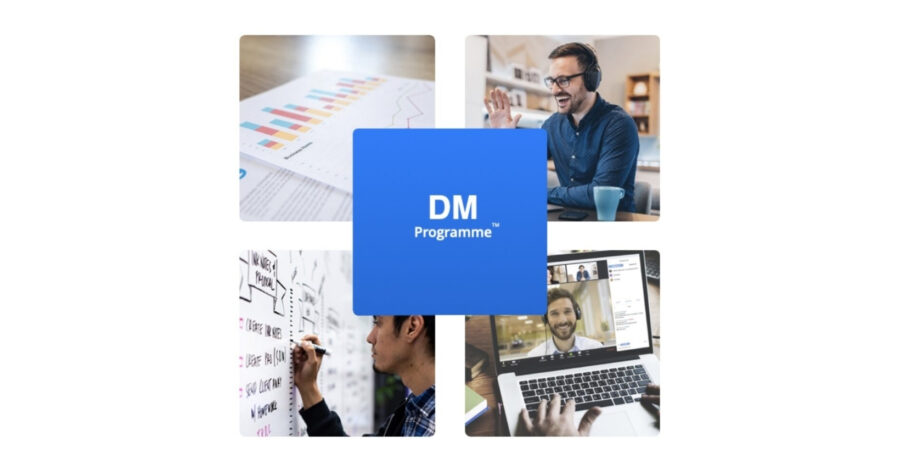
What are the Benefits of CRM in Financial Services?
Customer Relationship Management (CRM) is becoming increasingly relevant in every industry. It’s a buzzword that stands for more personalised customer service, streamlined business processes, and better understanding and data usage. Without proper CRM leverage, businesses risk falling behind with technological advances and missing opportunities to build better relationships with existing clients and connect with valuable new clients.
More and more, customers expect a higher level of customer service and better digital access to the service representatives and products that they need. The only real way to successfully deliver this to every single one of your financial customers is to use a CRM.
Whether your business specialises in banking, insurance, or another financial service, investing in a CRM system can revolutionise how you manage your customers, your products, and your day-to-day admin.
While this article focuses on banking and insurance specifically, the CRM benefits discussed apply to financial services of almost every kind. Take a look and identify which resonates with your business offerings.
What role do Customer Relationship Management systems (CRMs) play in Banking?
Banking institutions are a staple in the community and power everything from nationwide economic growth to individual passion projects and sole-trader businesses. CRM systems can be an invaluable tool for banks in reaching sales goals, building effective marketing campaigns, and establishing a good, trusting relationship with customers, whether they are individuals or commercial businesses. For banks, building future-proof plans that work for many demographics is of vital importance, so a CRM can be used to gain an in-depth understanding of failures and successes. In a nutshell, CRM guides banks towards creating sales and marketing strategies that anticipate the needs of their customers.
With a CRM, banking organisations can track all customer interactions, learn from the data, and adopt a more personalised approach to future conversations and sales opportunities. The CRM system can also act as a kind of blueprint for organisations looking for a push in the right direction. Workflows and marketing plans designed and tested by CRM creators can provide a great starting point for anyone looking for a new marketing style. The unique tools available will open up a new realm of possibilities.
What role does CRM play in the insurance industry?
The insurance industry is always growing, as life for the consumer gets more complex and more valuable assets require protecting. New insurance companies crop up regularly, so competition is becoming stiffer. Correctly using a CRM to improve your business processes and better connect with valuable customers is essential to ensuring your insurance company stands the test of time and remains profitable as life becomes digitised.
As in banking, CRM systems within insurance firms allow for better storage and leverage of data. A CRM will take the hard, time-consuming work out of processing and understanding data, so you can concentrate on using insights to develop products that suit your customers and recruit more of your ideal clients.
4 Benefits of CRM in Finance
The benefits of Customer Relationship Management tools in financial services fall into three main categories: customer service, marketing, and sales. Many of the features included in a CRM system positively impact more than one of these three areas of your business, which is why utilising even one of the benefits listed below can have a huge impact on your business processes.
1. Manage clients and leads
Historically, the main purpose of CRM systems was to store and manage data. Today, they take this to the next level with 360-degree customer view that is linked to all other banking software programmes. All customer interactions, from a phone call to an ATM withdrawal, are stored in the database, so you can ensure you know what each customer is interested in and identify opportunities to further nurture your relationship.
2. Segmented marketing campaigns
With more customer data at your fingertips, it’s easy to divide your customers up based on interests, demographics, and purchase history, and offer them a more personal experience. By identifying which products are likely to appeal to each group, you can increase sales potential, customer lifetime value, and customer loyalty and satisfaction. This information can also be used to personalise marketing content, allowing you to set different groups of customers on different marketing pathways proactively, particularly as they hit different milestones, both in life and in their relationship with your bank or insurance company.
3. Improve customer interactions
Extra personalisation and niche marketing campaigns all lead to one thing: better communication with your customers. But what happens when your sales reps do speak to a customer one-to-one over the phone or by message? A CRM can help guide these interactions too. With all customer history together in one place, details can be accessed instantly while the conversation is ongoing, with notes added (either manually or through natural language processing (NLP)) as the call happens. Equally, omnichannel CRM communications pull together all customer communications into one window, so reps can chat to customers personally across web forms, social media, text, and email without losing the thread of the conversation. Features such as SOS video chats are a great touchpoint for customers who need fast assistance from their insurance company or want to discuss a big financial step without coming into a branch for a face-to-face meeting.
4. Identify profitable opportunities and connect third parties
Increased personalisation and better access to data help financial businesses identify opportunities for new products and upsells. Algorithms that learn from past examples can suggest products and solutions to the sales teams before they contact the customers. Equally, reports created within your CRM can identify which products are not profitable, so you can streamline your offerings and focus on those that are successful. Banks and insurers can also instantly share data and communicate with other third parties, including loan departments. This can help specialists provide customers with the information and third-party products they require quickly, without waiting for time-consuming referrals.
For a more detailed overview of how CRMs are developing, take a look at our round-up of new trends in CRM for 2022.
To chat with one of our solutions experts about how CRM can benefit your financial services organisation, schedule a call at a time to suit you. Alternatively, find out more about how our Discovery Mapping Programme can transform your business’s digital strategy to help you get the most out of CRM possibilities, and book a free, no-obligation, 30-minute consultation.

Discovery Mapping Programme
Book a free no-obligation call with our CRM Solution Experts.



